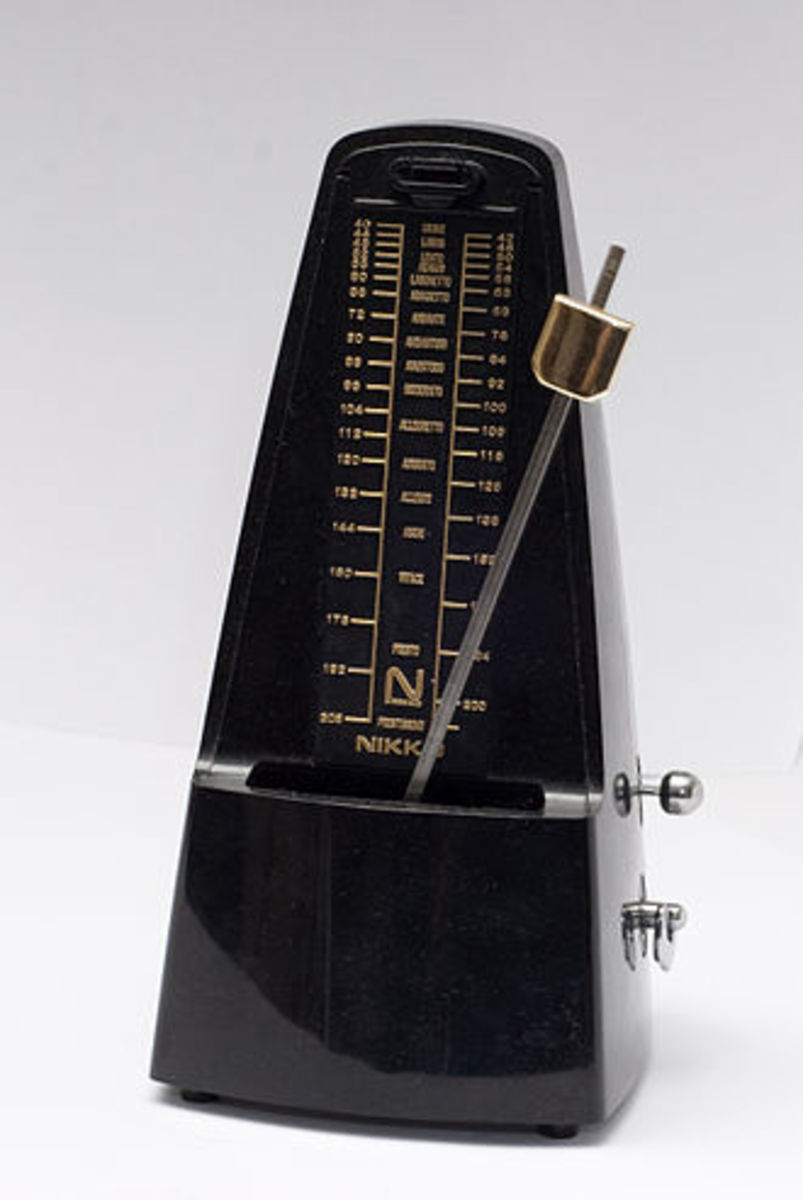The Organized Band Rehearsal

Obviously, if you are in a band, you need to practice. You may practice just once a week or maybe two or three times a week. To some extent, it doesn’t matter too much how often you get together if you are completely inefficient with your time. It’s really more about how well you use the time that you have when you do get together. That involves some organization.
The Proper Rehearsal Mindset
First of all, everyone has to have the right mindset when it comes to a rehearsal. Lesson one is that a practice is not a party or social event. You don’t invite a bunch of friends to the band rehearsal to see how your new band is doing. And you don’t bring a case of beer to the practice either. If you don’t take the rehearsals serious, you simply will not accomplish very much. It’s just not going to happen. Everyone in the band needs to take it all serious.
Everyone needs to understand that the whole purpose of the rehearsal is to try to get your repertoire together as a group. That means that everyone has everything they need, shows up on time and expects each member to be ready to play. Rehearsals can be fun in the sense that you enjoy playing but it really involves work as well. Everyone has to be willing to put in the work. That may involve playing some songs you are having trouble getting together on multiple times or going over certain sections of songs multiple times. You might be sick of the songs after a while but sometimes you may have to go over some things over and over again until you get them down. That part is not fun. That part is work. Hopefully no one is afraid to work.
Try to Set Up and Be Ready to Play on Time

Preparation is Very Important
One of the things that will help to maximize the efficiency of your usage of rehearsal time is the preparation for the rehearsal. Everyone should know what songs they are to learn prior to the rehearsal and that is something everyone should be doing on their own time. So, if they all know the songs they are supposed to know, they will be ready to play them during the rehearsals. If they don’t, they just waste everyone else’s time.
Everyone in the band also needs to show up for practice on time. Having three guys standing around waiting for the fourth to show just doesn’t quite cut it. I have been in a number of band situations and quite often, it is usually the same guy that is always late. Sure you might, on occasion, have some of the other members show up late but they usually have a good reason behind their tardiness. It’s usually that one guy that shows up late all of the time and he usually has a lot of lame excuses to go with his tardiness as well.
Some people may require more setup time than others. For instance, the drummer will probably need more time to set up than, say, the guitarist. Perhaps the drummer could show up a bit earlier than the rest of the band in order to be ready to play by the time everyone else is set up. It’s also a good idea not to talk too much while setting up. I have known people who constantly stop what they are doing to tell some kind of story. If you can’t tell the story while your setting up, then you just need to shut up until you are done setting up. The sooner you are set up, the sooner you can start playing.
The Set List is the Boss
As your band slowly learns more and more songs over time, your set list obviously gets longer. After a while, you have to start practicing more songs in a band rehearsal. The best way to do that is to go down the list of songs you all already know and get them out of the way. Then work on the new songs afterwards. You really want to try to cover as many songs as you can in a rehearsal. I have found that the best way of doing it is to just go straight down the list. Play one song after another until you are done. No excessive chatting between songs or goofing off. Go down the list systematically without any hesitation at all between songs.
I don’t know how many songs some of you may have covered in your rehearsals. But I have had some band rehearsals where we have actually played around 40 songs in a single band practice. We had a set list of 80 songs and we would practice twice a week, So each practice would consist of rehearsing half of the songs on our set list.
But we just went straight down the list and did no chit chat between songs and we did not goof off at all between songs. It takes a certain amount of discipline but once you get used to doing it, it’s not so bad. Just go straight down the list in the order that the songs are listed in and play them whether you feel like it or not. Just do it.
Now, if you determine that you don’t really like the order that the songs are in on the set list, change the order to one that you think will work better. But after you make the changes, in future rehearsals, still just go straight down the list without hesitation and limit the amount of wasted time between songs. If you have to break for someone to use the restroom, have everyone stop and go if they need to go. It’s about how many songs on that set list you can knock out in a single practice. That’s why I always say that in rehearsals, the set list is the boss.
First Things First
There is a logical order to things when it comes to band rehearsals. Obviously, you set up your equipment first and get ready to play. The next step would be to play the songs you already know. Then you work on the songs you are currently learning or trying to get together on. After that, then you may want to discuss as to what everyone should do in preparation for the next rehearsal. After all the business is done, then goof off or socialize. Maybe go out and have a beer. But in any case, there is a logical order for things and you should adhere to your basic set procedures and do the work that needs to be done first before you kick back and relax.
After I had been in a number of band situations, I saw for myself what things worked and what things did not work. I developed what I thought was a logical order for things to do in a band rehearsal. Once I developed that, I basically took that with me no matter where I went. For me, the order was always to play the songs you know first, then the songs you are currently learning. After that, maybe go over the songs that give you a little trouble or the sections of a song that you may be having problems with. Then, discus what to work on in preparation for the next rehearsal. And when we practiced, we would go straight down the list just like I stated above.
The No Excuse Policy
Obviously certain things are expected of each band member and one of those things would be to have learned the material each person is expected to learn. If everyone agrees that there are three songs to be learned by everyone by the next rehearsal, then everyone needs to know them. There should be no excuses for not having learned them. So how do you expect everyone to know the songs and not have an excuse for not learning them if they don’t? Well, you need to make it so that there are no excuses.
Everyone in the band should know what songs to learn. Each one should have some form of access to the songs being learned. That means that everyone should have a recording of all the songs they are to learn. You could even provide everyone with chord sheets that provide the chords of the songs with the lyrics. You can find the lyrics and chords to basically any song on the Internet. So if everyone is provided a CD with the songs on it and the chord sheets and/or lyrics, there is no excuse for not learning the songs. I have found that if you provide everything to everyone that they will need to learn a song, then there is no good excuse for not, in most cases. Obviously, unforeseen tragedies would be an exception but, take my word for it, they aren’t the most common reason people don’t learn the songs. Believe me, I know. Most excuses are the band equivalent of the dog ate my homework.
Don't Accept Lame Excuses

A Few Final Points
I personally think that organization is crucial when trying to achieve anything of significance. Things are accomplished sooner as a result and the results themselves are usually better. Disorganization just leads to an inefficient use of time, confusion and, in some cases, chaos. So take it from me, I’ll take organization over chaos any day.
© 2018 Bob Craypoe








